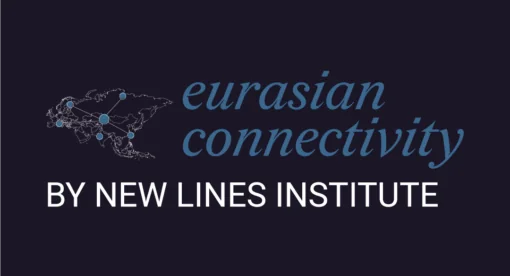Editor’s Note: The Indian government decided Aug. 5 to revoke Article 370 of the Indian Constitution, which gave the disputed region of Jammu and Kashmir considerable autonomy and was the basis for the region’s accession to the Indian federation. Newlines Institute experts are weighing in on what the decision means for the region, for India and Pakistan, and for policymakers beyond South Asia.
The revocation of Article 370 of India’s Constitution by the Hindu nationalist-led government of Prime Minister Narendra Modi will open the doors for greater communal conflicts and embolden the Kashmiri separatist movement. While Indian Interior Minister Amit Shah crafted his arguments based on national security and integration to the broader state of India, this move indicates that New Delhi wants to bifurcate Jammu Kashmir and Ladakh while controlling the province. New Delhi moved swiftly by adding approximately 35,000 Indian troops to the Jammu and Kashmir region after the revocation. The Indian military cut off all communications and Internet access for the population, which will only energize some to think that radical solutions are acceptable for the Kashmiri separatist movement. Imprisoning nonviolent protesters and senior members of the political parties like Yasin Malik without proper medical support, and prohibiting international human rights groups to monitor the actions of the Indian forces, will only draw more global attention and pressure. Senior politician Mehbooba Mufti, president of the Jammu & Kashmir Peoples Democratic Party, tweeted: “The people of Jammu & Kashmir feel defeated and betrayed by Indian institutions like the Supreme Court and Indian parliament.” This unfortunate miscalculation will further complicate India’s regional geopolitical influence and increase pressure on Washington to re-examine its relationship with India as it relates to the Indo-Pacific region. – Qamar-ul Huda, Founding Director.
India’s right-wing Hindu nationalist government made good on its campaign promise to end the special status of its northwestern Muslim-majority state of Jammu & Kashmir by scrapping a key constitutional article in place since 1949. Given that the Kashmir region has been at the heart of the 70-year conflict between nuclear rivals India and Pakistan, and parts of it are under China’s control, the Modi government’s move to forcibly break it into two separate union territories directly ruled by New Delhi will have profound geopolitical implications. While the strategic intent behind the move is to curb Kashmiri separatism, it will likely only make matters worse, considering how popular unrest has gained momentum in recent years. Pakistan-based Islamist militant groups — both those backed by Islamabad and transnational jihadist forces such as al Qaeda and ISIS — will now find greater room to exploit indigenous resistance inside Indian-administered Kashmir. Another terrorist attack similar to the one earlier this year targeting Indian paramilitary forces in Pulwama and claimed by Jaish-e-Mohammad would force the Modi administration to retaliate with much more force than the limited airstrikes that it conducted deep inside Pakistani territory to which Islamabad responded. Should that happen, there is a great risk of an outbreak of hostilities between the Indians and the Pakistanis that won’t be confined to the Line of Control in Kashmir. Such a situation would undermine U.S. efforts to exit Afghanistan, which is why the Trump Administration must use its influence and turn the threat of conflict into an opportunity for peace. – Kamran Bokhari, Director of Analytical Development
The Indian government’s unilateral decision, without consulting with the people of Kashmir, to abolish Article 370 is nothing short of a constitutional annexation of the state. The new measures also divide and reduce Kashmir to the status of a union territory directly governed by the federal government. All these decisions have been made without the consent of the people whose future is profoundly impacted by this. This is a complete subversion of democracy and a recipe for further unrest. The Hindu nationalist government, during whose rule minorities are lynched, beaten and murdered publicly by rampaging mobs, has made vandalism a key aspect of its statecraft. What it is doing in Kashmir is an extreme provocation, transforming the region literally under military occupation. This move will further radicalize Kashmiri youth, and it will encourage Hindu settlements and settlers in Kashmir and essentially create a situation similar to the Israeli occupation of the West Bank and Gaza. India today has taken steps that will only entrench, rather than resolve, the Kashmir crisis. It might even radicalize both Hindus and Muslims even more. – Muqtedar Khan, Senior Fellow
The Modi government is playing with fire. Manipulating a critical Indian constitutional provision relating to the disputed Jammu and Kashmir region is a recipe for not only inviting heightened tensions with Pakistan but also provoking communal unrest in India. This move will further traumatize the people of Kashmir. Kashmir’s freedoms, beauty, and spirituality have already been victims of the India-Pakistan rivalry for more than 70 years. Both countries have failed Kashmir through intransigence, interference, and injustice — and this initiative can make the situation worse. This challenging situation, however, also offers an opportunity for saner elements in South Asia to push their governments to think about making Kashmir a peace bridge between the two countries. – Hassan Abbas, Senior Fellow
India’s rash decision to revoke Article 370, which was the precondition to limited self-rule and accession into the Indian federation, and annex Kashmir is going to have tremendous implications for South Asian security. As India moves into Jammu-Kashmir as an occupying force, instituting martial law and draconian living conditions, Western allies are forced to confront the hypocrisy of settlement colonization. With India interceding in Kashmir through undemocratic means, the United States will have to reconsider its stance on arms sales to the South Asian power. The recent purchase of the S-400 missile system from Russia indicated that India is disregarding the United States as a true ally and partner in the region; New Delhi chose to instead turn to the competing power that is increasing its influence in the region. Despite President Trump’s overtures to mediate the conflict with Pakistan, India has gone ahead and made clear that the United States needs to reconsider who its true friends are in the region. – Minna Jaffery, Content Manager
Image Courtesy: Geopolitical Futures
The views expressed in this article are those of the author and not an official policy or position of the Newlines Institute.







